The Earth’s surface is 70% water. We call it the Blue Planet for a reason!
Over 98% of that water is liquid—mostly in the oceans, as well as rivers, lakes, ponds … even that stuff in your glass (gulp! Ahhhh … delicious!). But the rest of it? That’s ice.
You can find this ice in mountain glaciers and in lakes that freeze over for the winter. But most of it is found in the polar ice caps—massive year-round sheets of frozen water in the far northern and southern regions of our planet.
Except as climate change has brought warmer temperatures to the planet, something big has started to happen. This ancient ice has been melting.
Not all at once. And not evenly either—some of the ice is always melting and then freezing again as the seasons go from summer to winter. But overall, the average size of the ice caps has been slowly shrinking for many decades. And as that melting ice has become new water in our oceans, global sea levels have been rising.
This threat of rising levels is a huge part of what pushed the world to create the Paris Climate Agreement—an attempt to reduce the carbon emissions that lead to climate change. But as reports of melting ice continue to roll in from both the Arctic and Antarctica, it leads to an important question…
Can we stop the ice caps from melting?
INTERVIEW: Jill Rajewicz, Arctic researcher
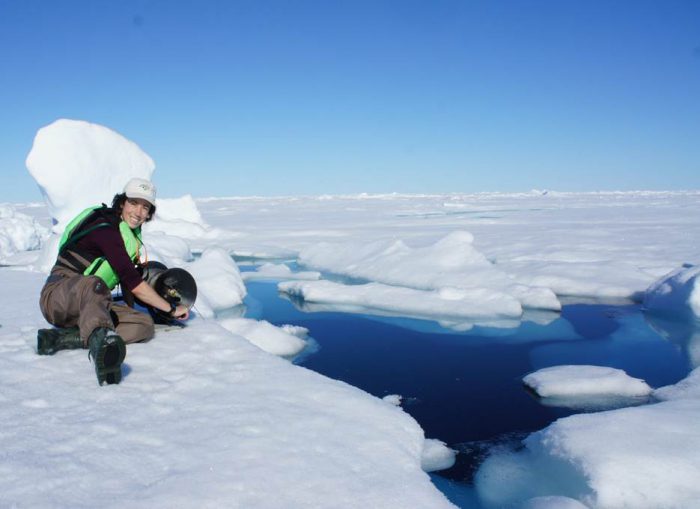
Jill spends a lot of her time studying Arctic sea ice—sometimes up close and personal! (Courtesy of Jill Rajewicz)
It’s the sort of heavy question that can lead to some major brain freeze! That’s why we asked Jill Rajewicz, a polar scientist at Carleton University, to help us understand this chilly subject.
OWLconnected: What exactly are the ice caps?
JILL: When we talk about ice that covers the polar regions (the ice caps), we are talking about two things. There’s land ice—ice that starts on land, like glaciers and the Antarctic and Greenland Ice Sheets. And there’s sea ice—frozen ocean water that forms, grows, and melts in the ocean.
The Arctic region is an ocean, surrounded by land. Some sea ice covers this ocean year-round.
Meanwhile, Antarctica is a continent that is 98% covered by ice (hello, Antarctic Ice Sheet). Antarctic sea ice is seasonal—it melts away and reforms every year.
There are rapid changes occurring to both land ice and sea ice at the poles. These changes are mostly likely due to increasing air and ocean temperatures resulting from greenhouse gases emitted by human activities.
Scientists research melting land ice on the Greenland Ice Sheet in 2013. (Getty Embed)
OC: Do different things happen when land and sea ice melt?
JR: When land ice melts, the water flows into the ocean and raises sea level. Bad news.
When sea ice melts, it does not raise sea level because it is already in the ocean! However, the shrinking of the Arctic sea ice is still a big deal.
Sea ice has a bright surface—80% of the sunlight that hits it is reflected back to space, keeping things cooler. As less sea ice covers the Arctic Ocean, there is more dark surface water exposed, which absorbs sunlight instead of reflecting it. That causes the ocean to heat up, which then causes warmer Arctic air temperatures, which then leads to more sea ice melt ... it creates a warming cycle.
Though polar bears are excellent swimmers, they still need strong sea ice to hunt seals and survive. (Getty Embed)
OC: What state are the ice caps in right now?
JR: Sea ice in the Arctic is disappearing. Not only is the area covered by sea ice shrinking, but the ice is becoming thinner. Thinner ice is more likely to melt during the summer. Scientists predict that eventually, there will no longer be a year-round cover of ice on the Arctic Ocean. In terms of Arctic land ice, glaciers and the Greenland Ice Sheet are losing ice, as warmer summers cause more melting.
In Antarctica, the huge ice sheet is also shrinking. Air temperatures there are very cold, so ice loss—while less dramatic than in the Arctic—is mainly caused by warmer ocean temperatures that melt glaciers from below.
OC: So how can we stop the ice caps from melting like this?
JR: The only way to limit these changes is to reduce our greenhouse gas emissions. You can write letters to leaders and politicians in your community to ask them to commit to tackling climate change. You can also research groups who are already working on these problems and get involved!
Things like walking or riding your bike instead of driving, turning off lights and appliances that you aren’t using to conserve energy, putting on a sweater instead of turning up the heat, and reduce, reuse and recycle! Encourage your family, friends, school, and community groups to do these things, too.
And if you’re really keen, try exploring “green careers” (like a renewable energy scientist!) where you will get to help solve climate-change challenges first hand.
Freezing our future
Antarctica may be on the other side of the world, but it's still part of the same planet: Earth. (Getty Embed)
The ice caps are so enormous that they are difficult to comprehend. And they are so far away from where most of us live. But they are connected to all of the other water around us. What happens to them, happens to us, too. If you’re concerned about their future, don’t fret. As Jill reminds us, every small change YOU make CAN make a difference!
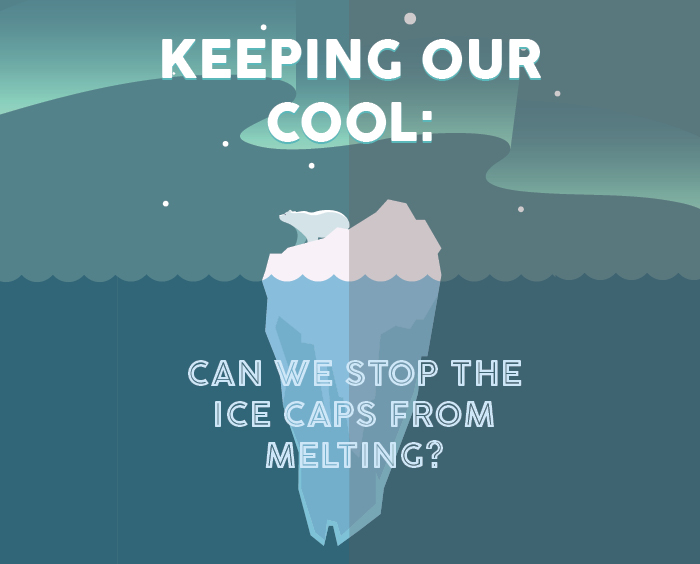
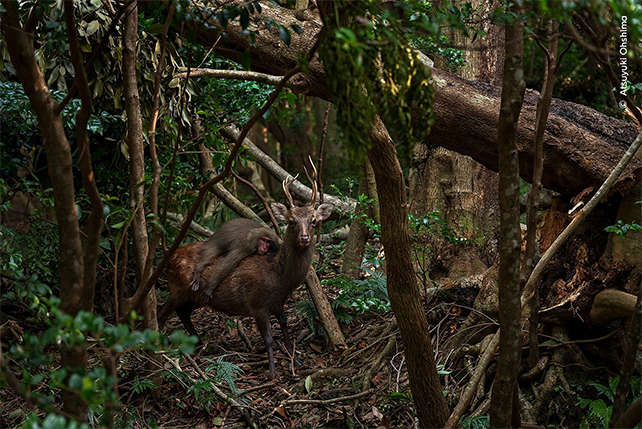
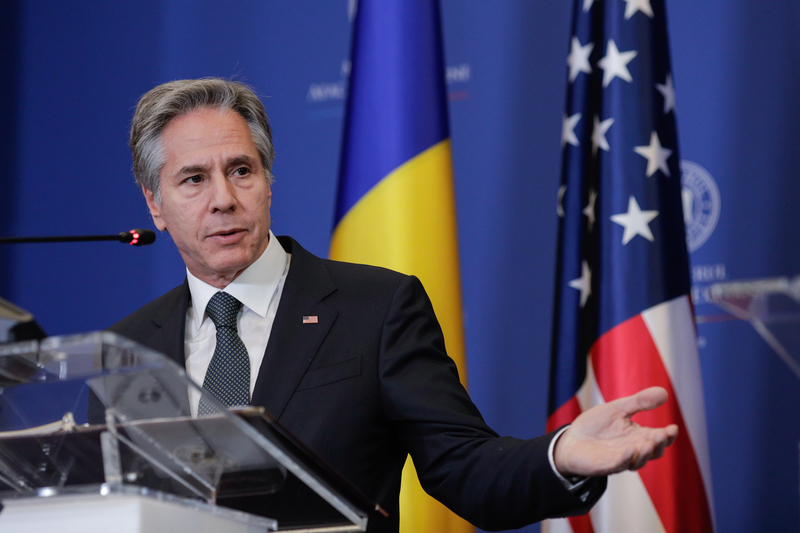
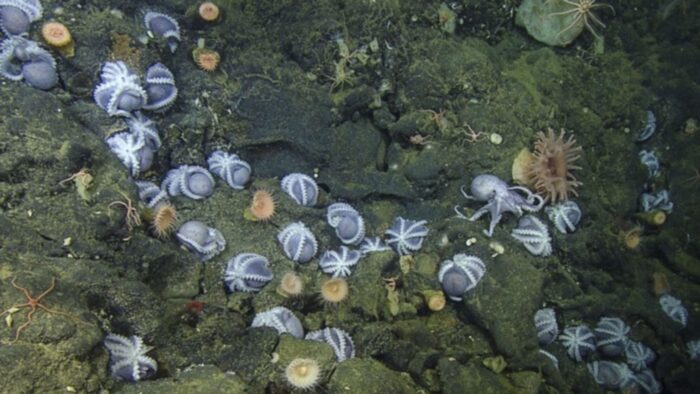
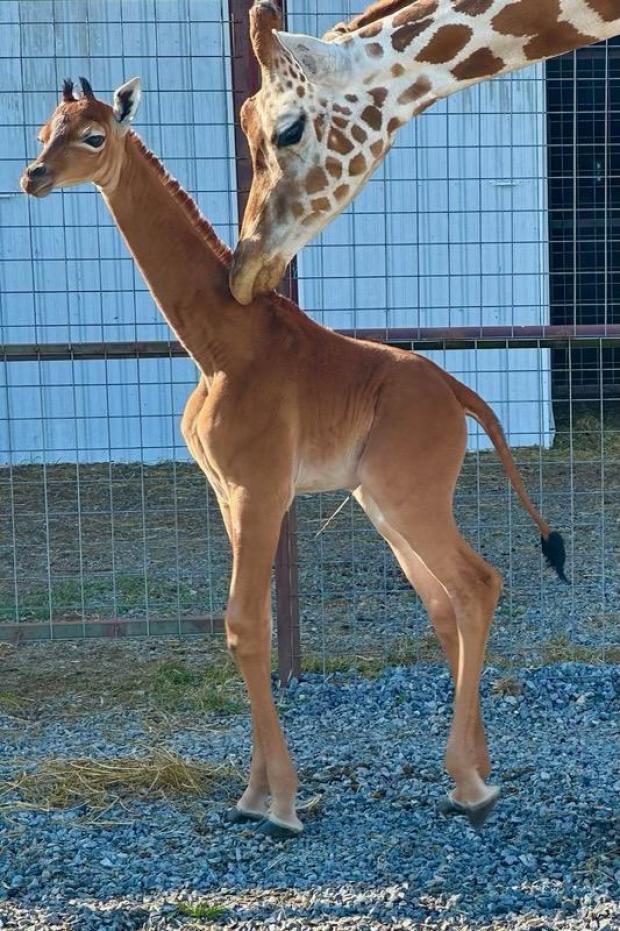
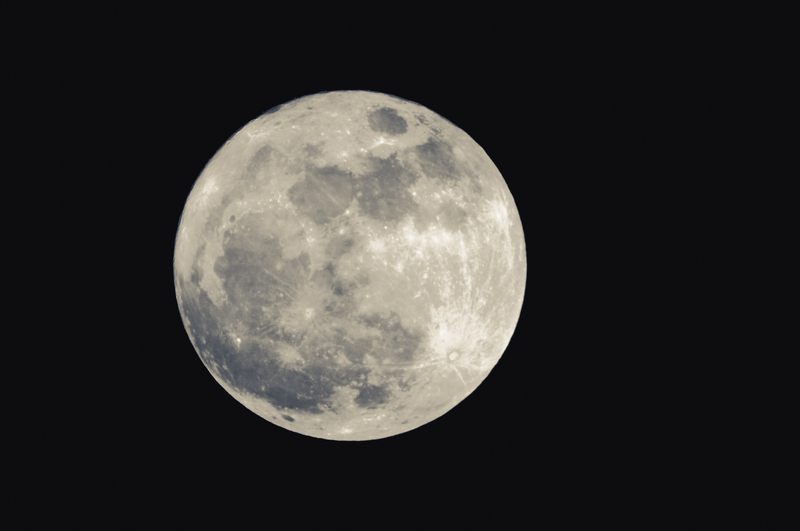
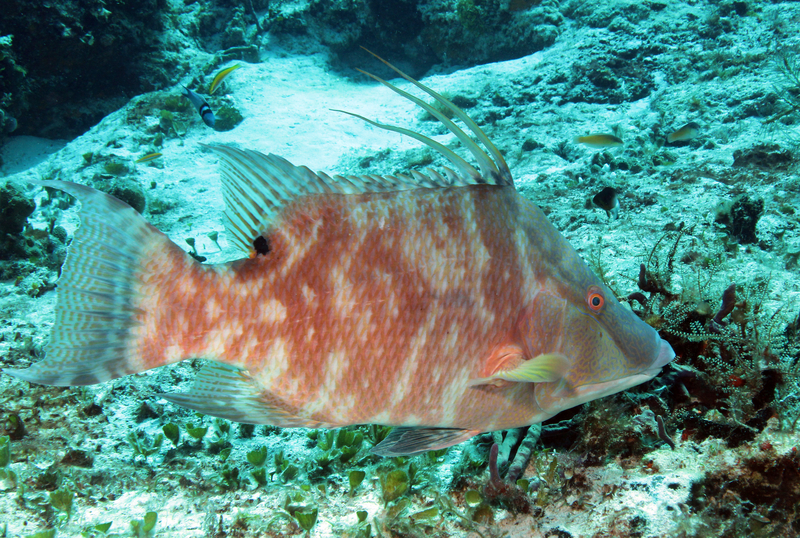
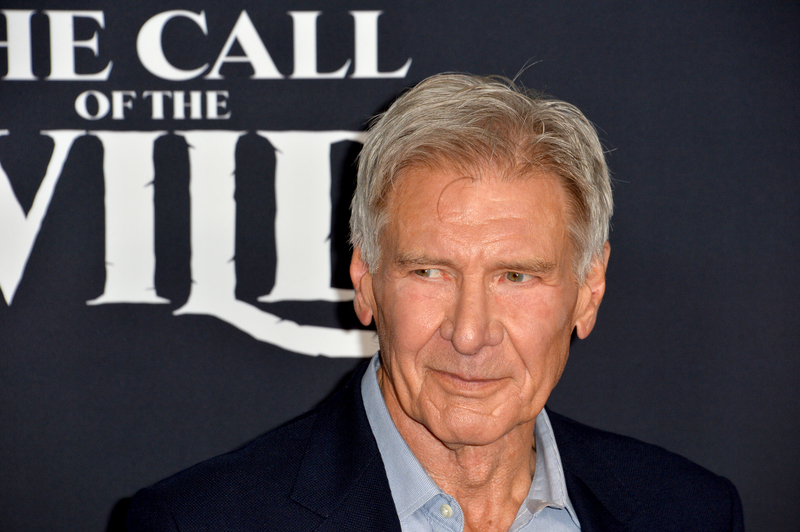
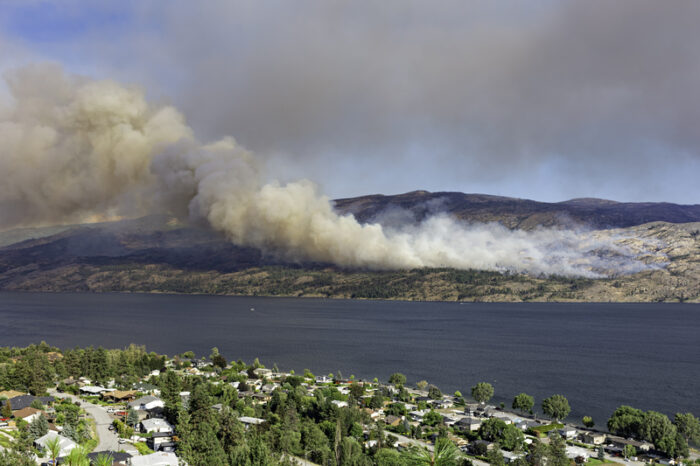
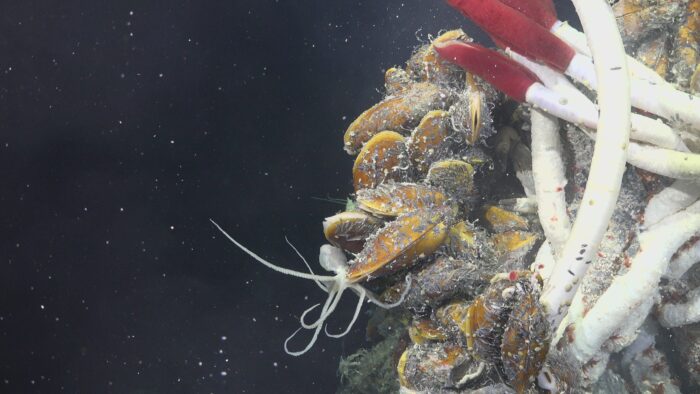
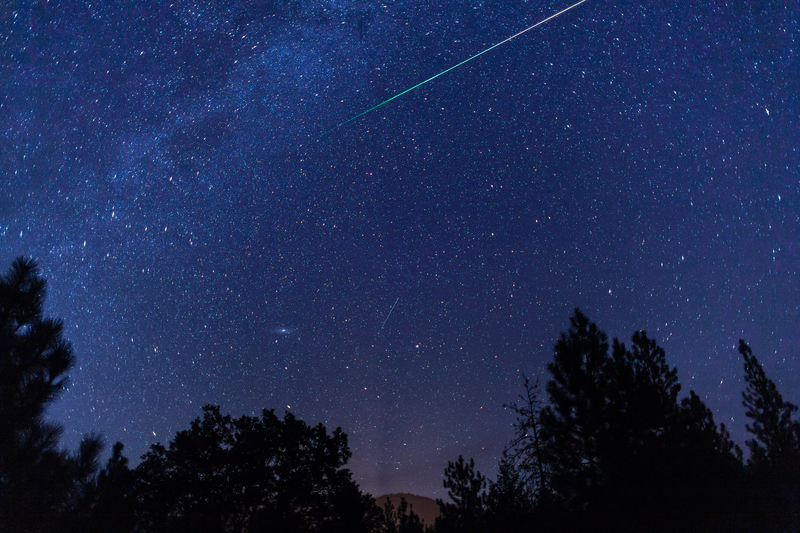
Bravo Owl Connected!!
As a planet community we must change our ways of doing things. It will simply not be enough to incrementally (a little bit at a time from everyone) change our habits in order to stop the melting of ice.
The global warming and climate change problem stems from the biggest of businesses (OIL, Banks, Automotive and communications – internet and phone specifically). Their wealth and influence must initiate massive change. Kids, we need a massive change or the ice will keep melting. Keep telling adults to start making change and think about things YOU can do or suggest to make the adults listen. Some adults want a green planet forever…and others do not care! I’m worried and this is real. Kids, your voices are more important now than ever before in the history of planet earth. The adults that count will hear you. Scream it to them loud and often.
David, father of 6 year old Nico
🙂 great way to inform and share with the kids. Please write one about plastic waist.
I loved the information shared in this article. I used it in my teaching lesson on climate change and effects on polar regions and its inhabitants
I think this is an excellent series for kids to familiarize them with the fact of climate change. I forward it each month to my grand nephew for whom I bought the subscription.
Hello All, Love the article. It is informative but not too scary. Good work. The suggestions that Jill makes are great but too small. My family is already committed to doing those things. I am thinking that we need to push for some bigger changes. Is carbon tax the answer? Do we treat carbon emission as an unhealthy habit, like cigarettes, and encourage people to choose differently because of the financial cost? Canada is committing some pretty big errors in judgement such as with the tar sands and their devastation to the boreal forest…How do we get those in power to make an about face, a u-turn, and stand up for the greater good? It seems intuitive to understand that money is artificial and the health of the Earth is not. If we do not take care of it, the state of the economy will end up being irrelevant. This article has spurred me on to write to all levels of government and politely (since I am Canadian) but firmly urge them to act. My 10 year old son will be so proud of me. In fact, I think we will write the letters together. Together we can make change happen! Go Owl Connected!!!
I thought this was really cool! But now that the ice caps are melting, what will happen to all the animals that live there?
Well, they lose their habitat and die.
Read many years ago that German scientists discovered three volcanos erupting under the Arctic ice. If that was true I am not responsible for “climate change/global warming” and anything I do will not stop the ice from melting.
😯 ANd Donald Trump thinks it’s all a Chinese conspiracy so they can take over the world… 🙄
Hiding our heads in the sand and saying its not fault is wrong and helps no-one.
Small changes will hardly be noticed by you but might help save a whole natural environment.
Always worth the try!!
Chinese was working hard to change the problems.
Good job Owl connected! It is awesome that most people remember to take care of the Earth! If we take care of the Earth, we will take care of our home and ourselves!!! 😀
In terms of reducing carbon emissions, in our house we also talk about consumption and production as a major contributor. Before we buy or take something new into our home, we need to ask: How is it made and packaged? How is shipped? How will it leave? Do we really need it?
There are 2 things that worries me, and that is global warming and waste polution.
There are so many meetings with different country’s but nothing get done.. it is all words but no action.
Some country’s will only reduce their gas emmisions by 2050??? then i am sure that will be far to late…
People that do waste (plastic,any form of polution should get a fine because adults are not disciplined.
I would set up all the recycle bins at the beaches, i am sure that will help a bit.. i am very concerned.. and yes the voices of children must be heard.. as it will be their future that we as adults dont look after and for me that is VERY SELFISH. 🙁 😐
😎 😎 😎 😎 😎 😎 😥 😥 😥 😳 😳 😳 😳 ❓ ❓ ❓ ❗ ❗ ❗ 💡 💡 😛 😛 😛 😛
We are doing a science project at our school about this, and I needed to figure out some solutions. There were so many solutions! I really loved learning about it and how our actions have big consequences. I have so many reasons now, and I hope to learn more in the future! As we go on with daily life, we need to remember what we do. Thanks again!
the logistics are huge i get but if money was not an issue could we not put desalienation plants in artic, salt slurry would help with conveyor belt of the oceans and take that fresh water and make it into snow like ski hills only industrial scale and put it all over large area of artic ice to at least mitigate melting hence keeping albedo effect sorta goin.. just an uneducated individual thinking out loud but tell me how im wrong thx cheers ..huge projects are not a problem for humans (panama canal,huge dams etc) seems that in the face of global tragedy we could do something
Hey! Going by the principle of sunlight reflection versus absorption, can’t this be a solution that we can execute ASAP- spread sheets of Floating white reflective surfaces where arctic sea ice was! In order to slow down and even arrest the sunlight absorption.
I’m referring to this bit from the interview: “ Sea ice has a bright surface—80% of the sunlight that hits it is reflected back to space, keeping things cooler. As less sea ice covers the Arctic Ocean, there is more dark surface water exposed, which absorbs sunlight instead of reflecting it. That causes the ocean to heat up, which then causes warmer Arctic air temperatures, which then leads to more sea ice melt … it creates a warming cycle.”
Its great to see some things are being done to solve this problem, I have an idea so please tell me what you think?
Why dont we manufacturer large white plastic floating pontoons, these will help stop the sun from heating the water and at the same time will give animal life a place to live??
Steve
If people are more responsible and they care more about the environment and Global warming, then maybe this will not happen. I felt l sad of how other people treat the environment like trash, we are the ones who will suffer for it. I’m only 12 years old and I will do my best to encourage my friends, my family, and my classmates,
to do what’s best for our environment. I hope you do the same to. 🙂